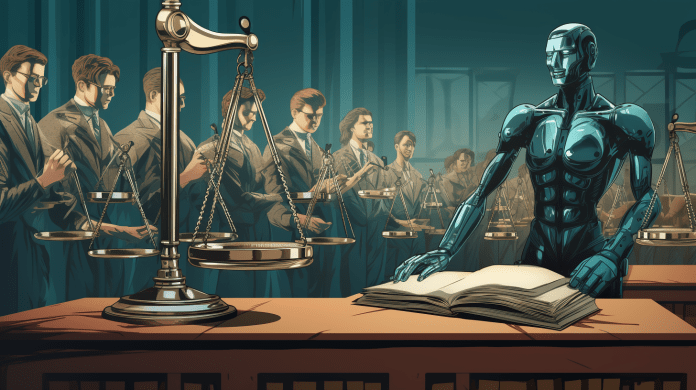Photo was created by Webthat using MidJourney
Introduction and TUC’s Concerns
The UK is falling behind in providing adequate protection for workers in the face of advancing artificial intelligence (AI) technology, according to the Trade Union Congress (TUC). Unlike the EU’s AI Act, the UK lacks specific plans to regulate AI’s use in employment, including hiring, firing, and work conditions. In response, the TUC has called for the formation of a taskforce to draft essential legal protections. While some business leaders praise AI for its potential to drive innovation and improve customer service, unions express deep concerns that employment laws in the UK are not keeping up with the AI revolution.
Octopus Energy’s AI Adoption
The impact of AI in the workplace is becoming increasingly evident, with companies like Octopus Energy utilizing AI to handle customer service queries. The company’s CEO, Greg Jackson, revealed that customers even prefer AI-generated emails over those written by human staff, attributing an 80-85% customer satisfaction rating to AI responses compared to 65% for human-written emails. However, he emphasizes the importance of responsible AI implementation, ensuring it complements human workers rather than replacing them.
AI’s Potential in Biopharma Industry
The CEO of GSK, a pharmaceutical giant, believes that AI could revolutionize drug development by analyzing data faster and identifying patterns more efficiently. This accelerated process could lead to significant breakthroughs in medicine, potentially improving health outcomes for millions worldwide. Despite the promise of AI in the biopharma industry, the responsible use and regulation of AI remains a crucial concern.
AI’s Impact on Creative Arts
Contrary to the assumption that AI’s influence might be limited in creative fields, actress and voice-over artist Laurence Bouvard highlights its potential threat. AI is being used to sample, analyze, and replicate human voices without proper attribution or compensation for the original artists. This poses a particular danger to lesser-known artists in the audio industry, jeopardizing their careers and creative livelihoods. Proper regulations and safeguards are necessary to protect creative professionals from AI misuse.
OECD’s Call for Responsible AI Use
The Organization for Economic Cooperation and Development (OECD) warns that the world is on the brink of an AI revolution, demanding urgent action to ensure responsible and trustworthy AI use in the workplace. The responsibility for regulating AI’s power remains uncertain both within the UK and internationally. While AI promises to fuel growth and create new jobs, it is crucial to collaborate with businesses and regulators to guarantee its safe and responsible implementation.
Conclusion – Navigating the AI Future
As AI continues to wield significant influence across industries and the workplace, it is essential to address the concerns raised by the TUC and other stakeholders. The absence of concrete AI-specific legislation in the UK highlights the need for comprehensive regulations to protect workers’ rights and ensure AI complements human labor. Striking the right balance between harnessing AI’s potential for progress while safeguarding the workforce’s well-being is key to shaping a prosperous AI-driven future.

